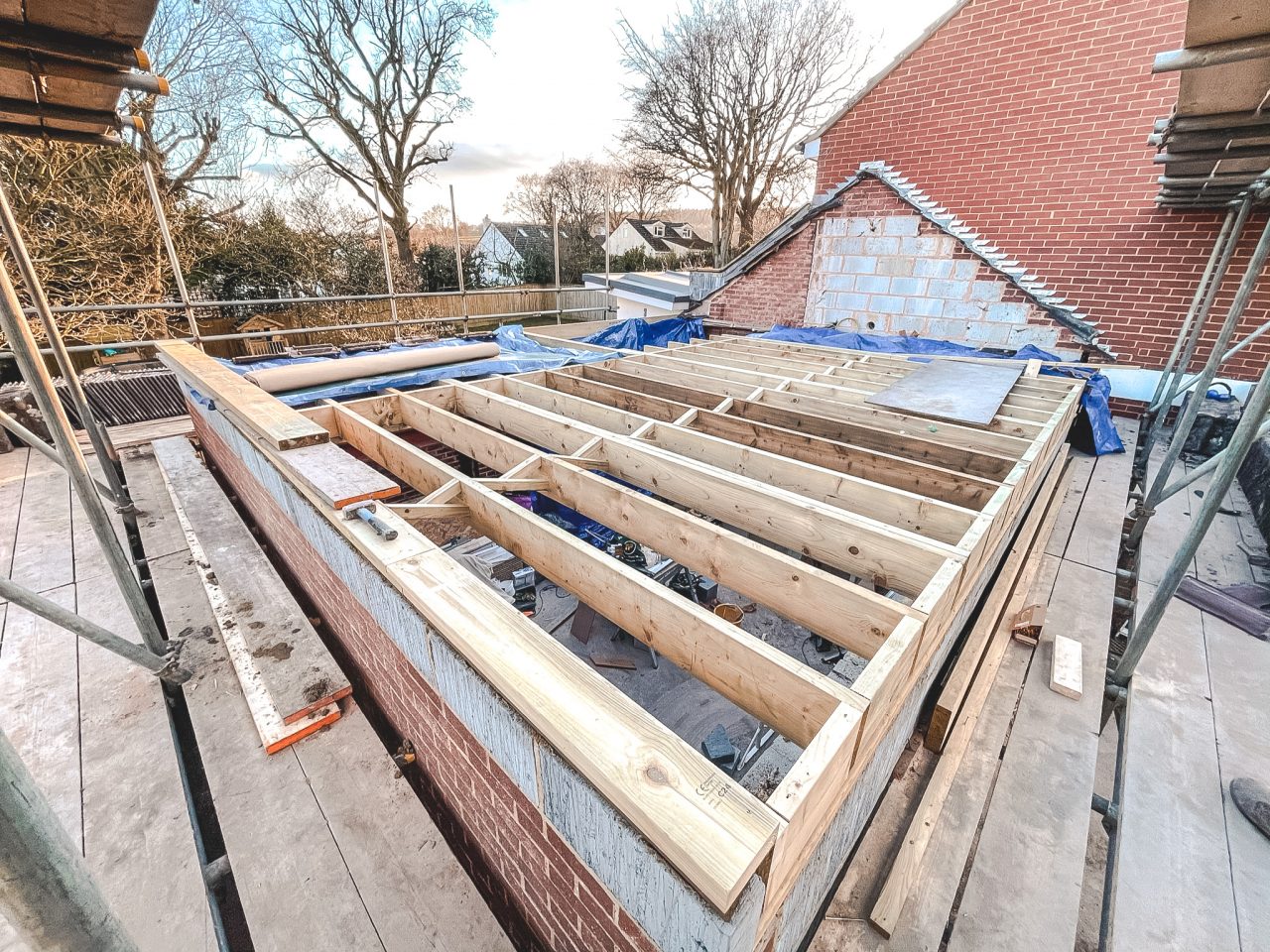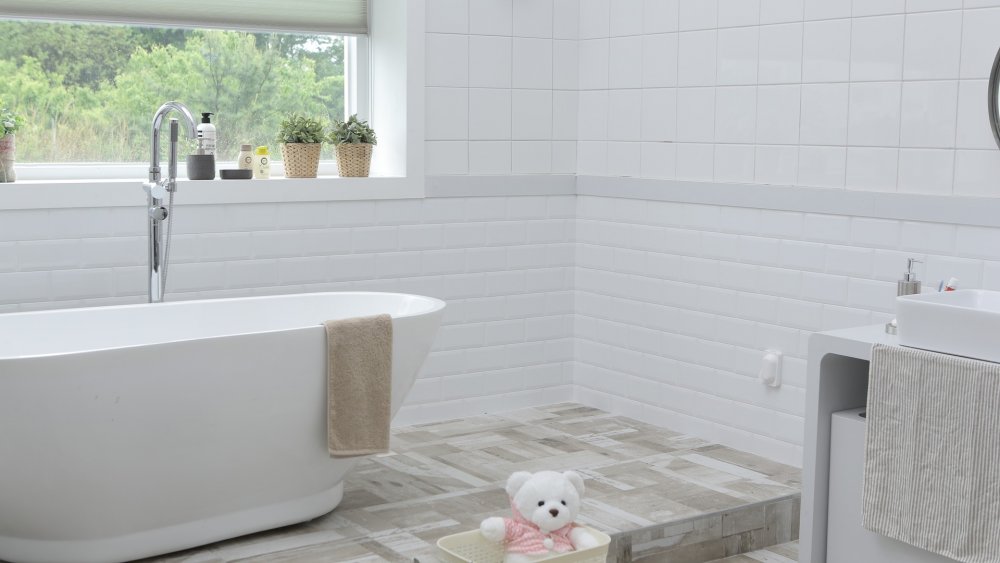In this post, we’re going to take a look at the logistic and supply issues currently facing the UK with a focus on how they have adversely impacted the home supply, DIY and construction sectors. We’ll also share some top tips on how you can save some money on buying large home items from abroad.
Most residents of the United Kingdom would probably agree that our wet little islands have endured something of a torrid time these past 18 months. Firstly, we saw one of the worst COVID-19 outcomes in the entire world. Both infections and deaths from the virus were the highest in Europe and the ensuing lockdowns were some of the longest and most damaging in the developed world. The sheer depth & cost of the lockdowns has led to record public debt, an intimidating National Health service backlog, and according to many, a mental health tsunami bubbling under the surface.
And no sooner had the corona-dust started to settle (albeit perhaps temporarily as winter flu season is fast approaching threatening a ‘4th wave’) then we began to see the onset of problems caused by the end of the Brexit transition period. These issues include a shortage of farm and supply chain labour, shortages of food & EU goods, and price increases all across the board. Whether the ‘Brexit issues’ are mere teething problems and kinks to be ironed out, or whether they are “baked in”, fundamental consequences of a brash, bad decision remains to be seen; we all have our opinions on the matter but none of us can know for certain just yet.
But what does seem pretty certain is that nothing is going to improve anytime soon. One of the major issues the UK currently faces is a shortage of 100,000 HGV drivers which was of course the main driving factor behind the recent pump-station ‘petrol panic’. The HGV driver shortage is largely a consequence of Brexit as an estimated 50,000 EU based drivers left the country seeking better treatment elsewhere and this was further augmented by a spike in native born drivers simply leaving the industry.
But another contributing factor was the 12 month hold on HGV training and testing caused by lockdowns. Thus far, the governments response to this has been to offer 20,000 temporary visas for HGV drivers (against a shortage of 100,000, and the scheme has apparently received little interest) and to lower the standards of HGV testing which critics allege will only lead to decreases in road safety.
Regardless of what personal views you may hold on COVID, Brexit or the current government, if you are living in the UK you will be feeling the pinch as the price of pretty much everything is increasing fast. Nationwide labour shortages are driving up wages (yay!), which in turn is causing the price of services and domestic made goods to rise (nay!). Then EU Tariffs and increased import costs mean that goods bought from within the EU (which by the way, is still by and large the UK’s most important trading partner) have increased noticeably.

Building and Trade Supply Issues
Whilst many UK residents are simply wondering how they are going to pay their next gas bill or fund their next helping of avocado on sourdough, others are experiencing more niche problems – the price of building materials and home fixtures. If you happen to work in the building or DIY trade or have simply undertaken any kind of home improvement recently, you will no doubt have noticed that the cost of materials has spiked and that certain wares are just proving very hard to come by.
The reasons for this include all of the ones set out above (labour, logistics, import costs) plus a global shortage of timber – all in all buying large items from abroad is more expensive than ever. If you are considering undertaking some major home renovations such as fitting a new kitchen or bathroom, then it’s quite possibly going to cost you a few hundred, if not a few thousand, pounds more than it may have done 18 months ago.
There are some steps you can take to offset the damages and cut those costs as much as possible but it’s going to mean doing some research and maybe getting a bit more hands on. Let’s take a look at what you can do.
Labour
At the risk of wheeling out a tried, stereotypical trope – over the last decade skilled EU labour absolutely slashed the costs of hiring tradesmen. Hardworking, diligent Polish or Romanian workers were simply willing to do a job for half the price of a native born plumber but now those days seem to be gone. Therefore to save money, it is worth doing as much of the work yourself as you possibly can. Of course, some jobs are best left to the specialists (and do not mess with gas or electricity without a proper qualification!) but in the era of YouTube DIY tutorials, you may find you are quite able to handle the bathroom tiling and laminate flooring yourself – hell my friend even managed to fit his own kitchen cupboards thanks to a certain DIY blogger!
Importing Goods
If you are buying any imported goods for your project, then it is worth trying to source them yourself directly from the supplier. Thanks to the internet, you can browse bathroom showrooms in Milan, or make direct contact with Moldovan marble wholesalers to price up your bespoke kitchen counter. Buying kitchens abroad and having them imported yourself can save you the cost of relying on a middle-man, who will add generally at least 25% on. Of course, you will need to pay for shipping yourself and should remember to factor in import duties. But, if you do it properly you will find that designer kitchen costing a fraction of the “normal” price.
Currency Exchanges and Money Transfers
If you do decide to buy goods directly from overseas suppliers yourself, you need to carefully consider how you will pay them. Whether you are intending to pay in Euros or Swiss francs, please bear in mind that forex trades and international payments are rarely straightforward – large foreign exchange transfers never are. If you rely on your bank to handle the transaction then they will apply the least favourable exchange rate and will levy hefty handling fees so you may find the transaction costing you more than you bargained for. This may mean the bank charging you more than you expected to pay at your end, or it may mean the supplier receiving less than they expected which could result in them refusing to send the goods.
To get around this, you could consider using a dedicated money transfer and currency exchange specialist. They specialise in large sum transfers abroad by offering better exchange rates and levying lower, more transparent fees. Depending on how much you are spending, you could easily save a few quid to a few hundred quid.

Where to Shop for Home Accessories Abroad
It’s a pretty big world so knowing where exactly to look for home accessories, fixtures, fittings and building materials can feel intimidating. But these are some of the best European markets for buying home supplies from abroad.
1 – Switzerland
The Swiss really know how to make fine things. From clocks, to chocolate to cheese to Psytrance, to bathrooms, they only do the best of the best. Just bear in mind that the Swiss franc is a strong currency and makes our trusty pound sterling look anaemic by comparison. Whilst you can definitely save serious money buying direct from the source, there is no “cheap” way to do business or buy goods in Switzerland so this one is only for those looking for high spec, luxury home products.
2 – Germany
The German market also makes high spec, reliable, functional furniture, bathrooms and kitchens but at more competitive prices. Whilst they may not be able to compete with the Swiss or Italians in terms of design and extravagance, buying German goods gives you a chance to get good quality wares at an affordable price. The Euro and Pound are also pretty steady against one another so you will know what you are paying.
3 – Slovakia
I’ve been saying for years that Eastern Europe is where it’s at. The region emerged from the Soviet sphere and has packed half a century of modernisation into a few short decades turning it into a rising economic engine. Slovakia’s economy is one of the fastest growing on earth and they are now producing some high quality goods. Despite a buoyant stock market and being a member of the Eurozone, you will still find that your pound goes pretty far here and you will be able to afford some high quality goods at bargain rates. It’s located at the peripheries of Western Europe so shipping will be by haulage Germany and France.
4 – Romania
With loads of forest for wood & lumber and relatively low labour costs, Romania is a fast emerging market for home fixtures and especially for furniture and kitchen units. Romania is in the EU but has not joined the Euro; therefore Romania remains cheap and your pound will go very far against the Lei. Romania is at the far side of the Balkans so be sure to properly factor in shipping which may come via the Black Sea.











No Comments